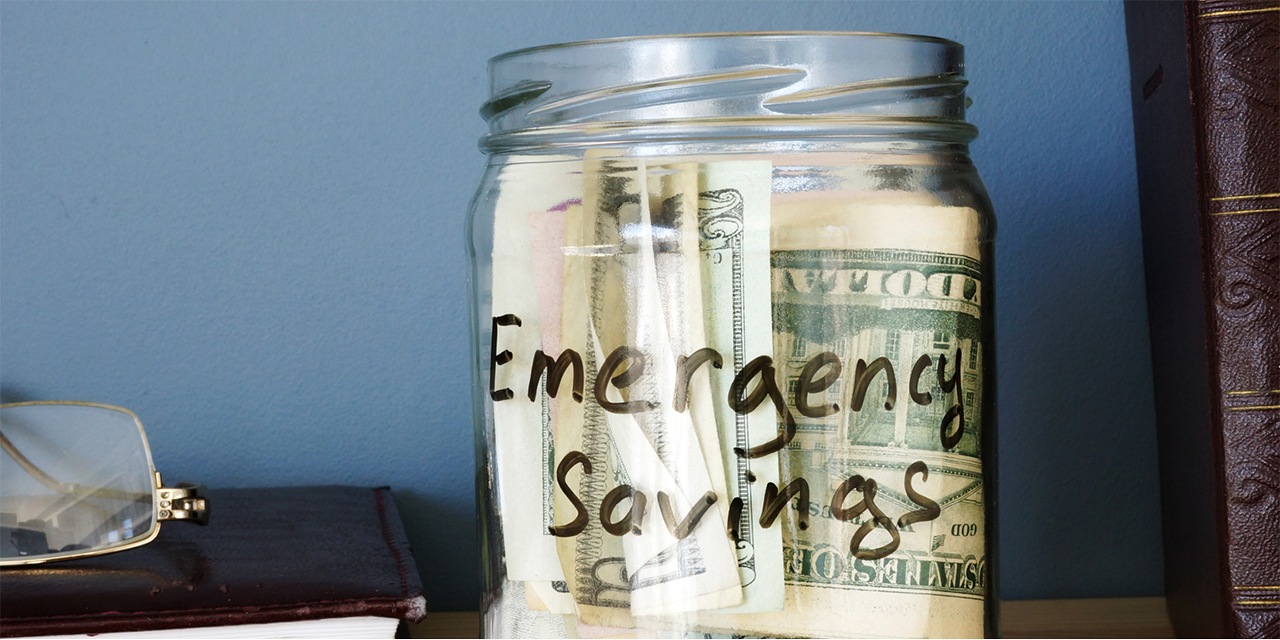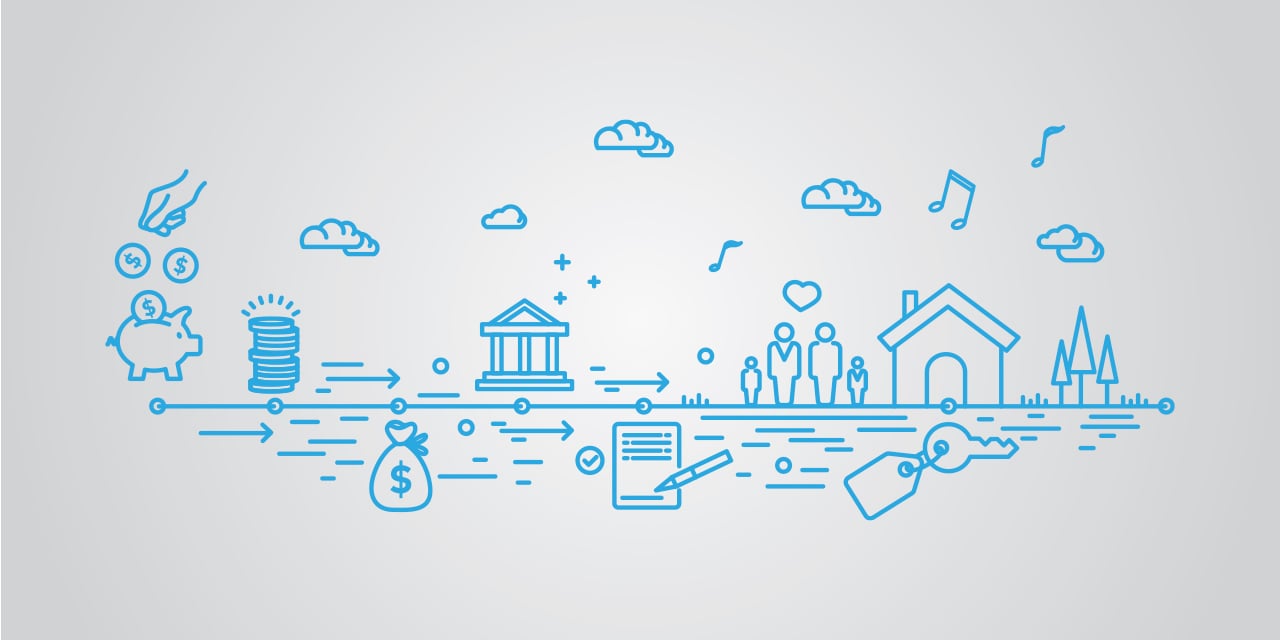
Building an Emergency Fund: Your Financial Safety Net
Emergencies, unfortunately, are a fact of life. Whether it’s a medical issue, an unforeseen home repair or even a sudden job loss, there may be moments when you need quick access to cash – sometimes for an extended period of time. And while creating an emergency fund can take time and effort, it can also provide something that is often in short supply during an emergency: security.
What Is an Emergency Fund?
Separate from a regular savings account or your day-to-day spending money, an emergency fund is a cash reserve that you build up to use on any unplanned expenses. While your traditional savings account is likely where you save for larger, future expenses like a down payment on a house, an emergency fund is different because it should only be used in a true emergency. And by creating an emergency fund, you can prevent yourself from drawing down those savings you’ve set aside for other goals. Typically, there are two events you prepare for by building an emergency fund: expense shocks (like your car needing a new transmission) and income shocks (like finding yourself unemployed).
I Have a Credit Card. Do I Really Need an Emergency Fund?
In the day and age of credit cards, you may think emergency funds are old news. Why make sacrifices to save money for the possibility of an emergency, when you can simply put emergency expenses on a credit card as they happen and pay them off later? Sure, credit cards offer convenience – but it comes at a cost. Credit card interest rates of 20-30% or more are common, which is generally much higher than other forms of debt. Access to credit can be valuable in an emergency, but if you don’t have the funds to pay off the debt when the bill comes around, it’s easy to make a tenuous financial situation worse. Plus, some expenses simply can’t be paid with credit, like rent or a mortgage. Because of this, credit cards are not a fully effective replacement for an emergency fund.
How Much Should I Save in My Emergency Fund?
Oftentimes, saving between three and six months’ worth of expenses in your emergency fund is recommended. However, this can vary depending on your specific situation. For example, if you are self-employed, experts often suggest you save about nine months’ worth of expenses – but if you’re employed by a company and rent an apartment (versus owning a home), you could be safe with saving around the three month expense mark. Your Baird Financial Advisor can help you determine the amount that is best for you to save based on your circumstances.
How Can I Start Building an Emergency Fund?
The prospect of saving several months’ worth of expenses in one place may be intimidating, but there are a few strategies you can employ to make the process a little easier. First, you’ll want to set a specific goal for how much you want to save and when you’ll want to save it by. If the number is a little scary, try setting smaller, incremental savings goals to supplement it – and as time goes on, make those savings goals larger and larger.
For some, it may be easy enough to make a habit of manually putting $50 per week into an emergency fund – but for others, the temptation to spend that $50 is strong. If you relate to the latter, try making the saving process automatic. There are a few ways to do this, like setting up an automatic recurring transfer through your bank that moves money from your checking account into your emergency fund. Similarly, many employers allow you to split your paycheck between accounts – so if you wanted, you could send a portion of your paycheck to your emergency fund every payday.
Aside from making recurring transfers to your emergency fund, you can also take advantage of one-time opportunities to save. For example, if you receive a large tax refund during tax season, you could take a portion of the money and put it into your emergency fund. Or, if you receive cash gifts for holidays or birthdays, you could do the same. No matter how you choose to save money in your emergency fund, remember to celebrate your success along the way – giving yourself small rewards as you hit incremental savings goals can provide the encouragement you need to build that emergency fund all the way.
What Is the Best Savings Account for an Emergency Fund?
When it comes to choosing where to save your emergency fund, there are two key factors to keep in mind: accessibility and security. In a financial emergency, the ability to access your emergency fund at a moment’s notice without incurring penalties is essential – and therefore, the fund needs to be liquid. Because of this, it’s generally not recommended to put your emergency fund in a stock-oriented investment, as selling stocks in exchange for cash can take time. Plus, stocks and other non-liquid investments carry a higher risk of loss on your original investment, and security is the other important factor to take into consideration here. Rather than risking a loss on some or all of your emergency fund, you can give yourself more security by putting the fund somewhere you can count on it remaining at the same balance. And if you opt for savings vehicles like high-yield savings accounts, you may even earn a little interest on the funds.
When Should I Use My Emergency Fund? What Constitutes an Emergency?
There’s no one-size-fits-all answer to which expenses are considered an emergency, but generally, larger expenses that are not part of your routine monthly spending may fall into this category. It’s important that you set guidelines for yourself on what is considered an emergency versus a simple unplanned expense. Not every unexpected expense is an emergency, but thoughtfully categorizing these costs can help you avoid unnecessarily spending down the account.
Building up an emergency fund can be challenging, as it can be difficult to put effort into saving without necessarily reaping a tangible reward for the savings you accrue. While you may use a traditional savings account to ultimately purchase that boat you’ve been saving for, an emergency fund is simply for the “what ifs.” However, if and when the time comes that an emergency expense pops up, you’ll be thankful that you were proactive about protecting your financial security.
If you have questions regarding the best way to go about building your emergency fund for your situation, reach out to your Baird Financial Advisor.
This article was originally published in May 2019 and updated in May 2025 with more current information.
This information has been developed by a member of Baird Wealth Solutions Group, a team of wealth management specialists who provide support to Baird Financial Advisor teams. The information offered is provided to you for informational purposes only. Robert W. Baird & Co. Incorporated is not a legal or tax services provider and you are strongly encouraged to seek the advice of the appropriate professional advisors before taking any action. The information reflected on this page are Baird expert opinions today and are subject to change. The information provided here has not taken into consideration the investment goals or needs of any specific investor and investors should not make any investment decisions based solely on this information. Past performance is not a guarantee of future results. All investments have some level of risk, and investors have different time horizons, goals and risk tolerances, so speak to your Baird Financial Advisor before taking action.


